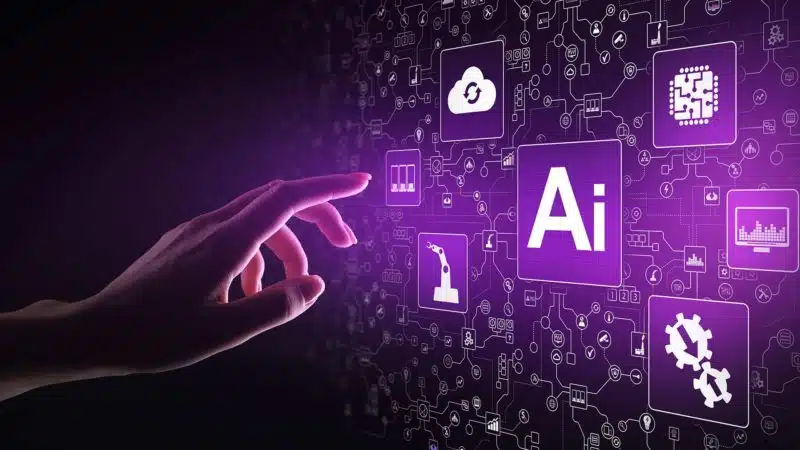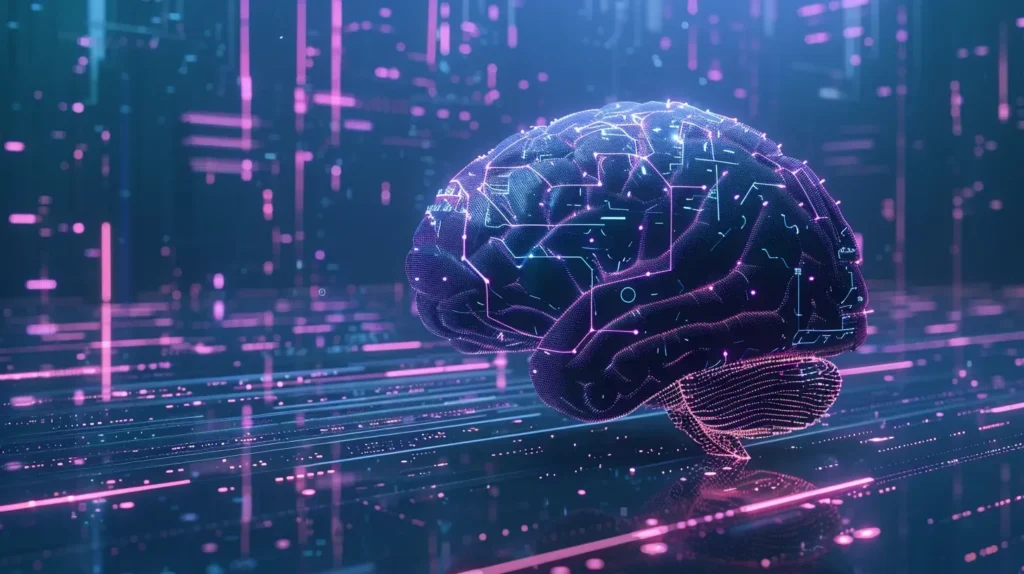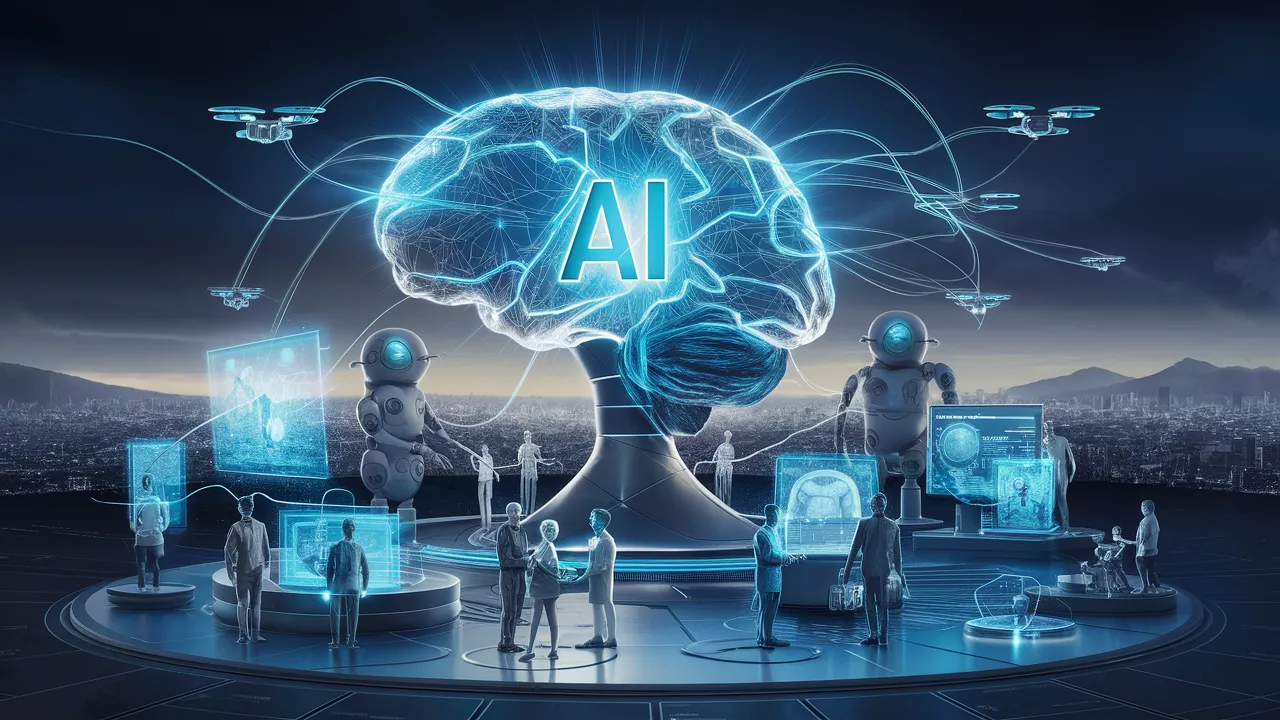It’s not an expression or a bandwagon term of the century, but rather a scientific revolution that is changing the way we live, work, and think. As AI technologies advance, this raises increasing interest—and concern—about their future interaction with human cognition. What will become of our brains, thoughts, and mental well-being once AI is integrated into our lives even further? The article observes these very questions as it looks into the future of AI and the possible effects on the human brain.
Future of AI: How is it Going to Affect the Human Brain?

The future of AI is a topic collectively filled with enthusiasm and dread. On one hand, AI is poised to revolutionize all industries, solve problems that are harrowing in their complexity, and will, in general, make life easy. However, it also raises issues regarding consequences on an ethical scale, job displacement, and more importantly, how it might, in the end, influence the human brain and its cognitive processes. Whether these systems actually have the potential to influence cognitive processes has become a growing concern with their sophistication.
AI and Cognitive Enhancement

Now, one of the most exciting aspects of AI is how different AI technologies will bring augmentation for a human’s cognitive capability. Artificially induced cognitive enhancement is the application of AI-driven technologies that try to enhance mental processes such as memory, attention, and problem-solving. AI can read through vast amounts of data to pick up on patterns that a human brain would often miss, thereby enabling decision-making and strategic thinking.
It can also be beneficial in learning because of the personalization of education. Such AI-based adaptive learning platforms adjust to the learning style and pace of an individual, improving retention and understanding of knowledge. That might very well be the future in which human cognitive abilities are greatly augmented by AI—man and machine working together in perfect synergy.
The Role of AI in Mental Health
Another very big area of interest is the impact of AI on mental health. Already, applications of AI have been put to use in diagnosis as well as treatment of a number of conditions in relation to mental health. For example, at an early stage, the signs of depression or anxiety can be revealed from speech patterns by AI algorithms. Additionally, AI chatbots are used for this support, opening up accessibility on an unimaginable scale.
In the near future, AI in mental health care could look far beyond making continuous emotional state follow-ups on you. For instance, imagine AI systems providing interventions in an emergency. This could help avert mental health crises by making timely interventions and generally improve mental well-being. However, it also raises some ethical questions about privacy and how far it is advisable that AI intrudes into our mental lives.
Potential Upside: Dependence on AI
Though the benefits are undeniable, at the same time, numerous risks come along with the elevating influence of AI on the human brain. One major concern here is the possible addiction to AI. With more capable AI systems, it can be that people start depending on them too much at the expense of certain cognitive abilities. For instance, too much dependence on AI for problem-solving may lower one’s ability to think critically or on his or her own.
Also, AI integration might affect attention spans in everyday life. Since AI systems are created in such a way to give instant information and answers, then, presumably, this can influence the way the human brain would become less patient or more easily distracted. This could have long-lasting implications for our cognitive health, especially in younger generations where AI has been a constant companion from their early years.
AI and Neuroplasticity
Neuroplasticity is the ability of brains to reorganize themselves by forming new neural connections throughout life. This is the way new skills are learned, brain injuries are recovered from, and change is coped with. Interspersing AI into our daily lives could potentially have profound effects on neuroplasticity.
On the bright side, AI might spur neuroplasticity if it is able to provide new challenges and opportunities for learning to the brain. On the downside, however, if AI systems begin to do what human beings used to do, then the brain will end up not receiving the necessary stimulation to continue practicing its plasticity. In this way, cognitive decline would gradually occur, especially in memory and problem-solving areas.
Creativity and AI
Creativity has often been held to be a very human aspect, but it seems like—against all metaphors—AI is going to replace even this. And these days, AI algorithms can create art themselves, make music, and, of course, write poetry. That leads to a logical question: In what way will AI influence human creativity?
Some believe that it is in the opinion of certain specialists that AI will contribute to greater creativity, mainly by offering tools and perspectives. For example, while AI can process large reams of data to come up with ideas or provide new ways of solving problems, at the same time, it is also believed that creativity might get stifled by the facility to just resort to preset solutions without really having to think through an original idea. Therefore, the future of AI will perhaps involve a subtle balancing of how AI can allow for creativity in the enablement sense, while ensuring that human creativity is paramount.
Ethical Considerations
But the future of AI is not just technical; it is also ethical. As AI embeds itself more and more into our everyday life, natural questions to privacy, autonomy, and the nature of consciousness will inevitably be raised. How much control should we cede to AI? Should AI be allowed to make decisions that can affect our state of mental health or cognitive powers? These are just a few of the ethical dilemmas that will need to be answered in a continuing developing AI.
The Human Brain and AI: A Symbiotic Relationship?
The relationship between the human brain and AI is probably one of increasing symbiosis as AI progresses. Artificial intelligence will not replace human cognitive intelligence, rather it may help build what will be the human brain of the future. It introduces a new paradigm in which collaboration goes on between the two—humans to bring in creativity and AIs to throw in information.
This, however, will require careful management of the symbiotic relationship to remain mutually beneficial. In integrating AI into our lives, there is an overkill, such as in maintaining it as a tool to enhance human capabilities while keeping the independence of the human mind.
What Is the Future of AI?
All that is promised in the future of AI with excitement and an equal degree of uncertainty. As the AI technologies advance, AI will become an increasingly profound part of the human mind. Starting from cognitive enhancement to care in medicine in the area of mental health, the possible ways that AI can impact the way we think and live are on the cusp of change. But the rub will come—harbor risks of dependency, cognitive decline, and ethical dilemmas.
In order to navigate this future, there needs to be a mix of optimism and caution when approaching AI. Hopefully, such understanding of potential benefits vs. risks can guide us when building a future in which AI enhances human life without compromising our mental and cognitive well-being.
Conclusion
The topic of the future AI/impact on human brains is of extreme importance. As AI will continue to progress, it must impact our cognition, mental hygiene, and quality of life. By fully accepting AI and bearing its dangers in mind, such powerful science is certain to serve humanity in the most positive way ever. The future always remains unknown, and AI would likely turn out to be a very powerful friend if approached with extreme caution along with ethical guidance in improving human experience.

